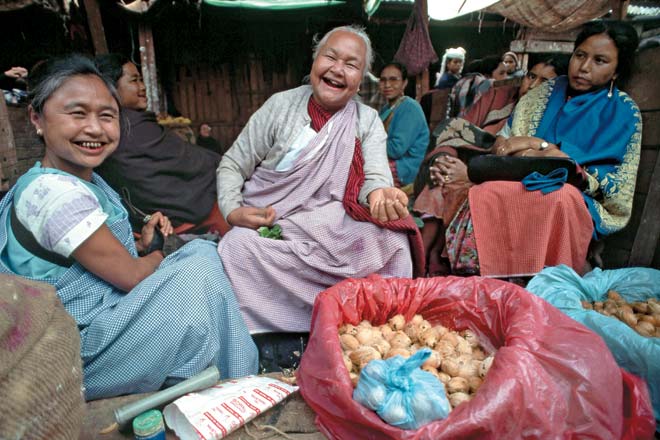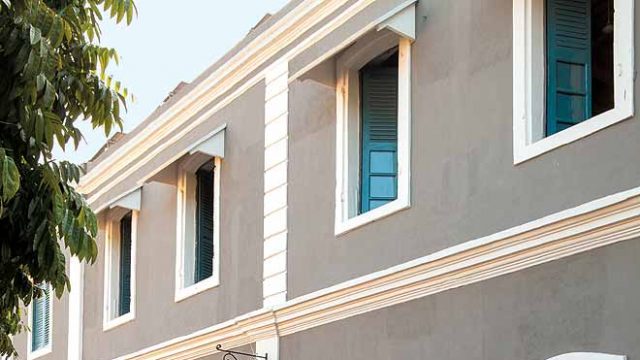SHILLONG
There is an other-worldly beauty and serenity to Shillong that commends itself to travellers of

SRINAGAR
The relative calm of recent months in Jammu and Kashmir has amplified Srinagar’s numerous charms, and visitors are flocking there in droves. The Dal Lake, with its charming, canopied shikaras and houseboats, is the epicentre of tourist attractions, although other, smaller lakes provide more secluded enjoyment. Romance abounds also in the Shalimar Gardens, and the chinar tree-lined avenues. Gulmarg and Pahalgam are a comfortable drive away. Srinagar’s syncretic culture is exemplified in its profusion of temples and wooden mosques. Savour a sumptuous wazwan meal at Ahdoo’s (www.ahdooshotel.com). (www.jktourism.org)
AHMEDABAD
The city on the banks of the serene Sabarmati is rich in historical and cultural heritage, arising from its centrality to the Delhi Sultanate from the 14th century. In contemporary times, it became identified with the Indian independence movement, after Gandhi set up the Sabarmati Ashram here; today, the ashram teems with countless visitors. Other attractions include the Akshardam Temple, some 20km away; the Juma Masjid, built with yellow sandstone; the bustling Manek Chowk, famed for its street food; the ‘shaking minarets’ at the Sidi Bashir mosque, although they have been damaged in recent years. For a full-on Gujarati and Rajasthani dining and cultural experience, visit Rajwadu (www.rajwadu.com).
BENGALURU
The cosmopolitan capital of Karnataka may bask in its rebranding as India’s IT capital, but it is Bengaluru’s old-world charm, centred around its public gardens and its gracious hospitality, that continues to draw visitors. The 240-acre Lal Bagh, commissioned in the 18th century as a botanical garden, is home to 1,000 tree and plant species. The Cubbon Park too is a charming place to hang loose, chewing on churumuri. The Bannerghatta National Park and the Butterfly Park, 22km away, are other attractions. A roundabout of Bengaluru is incomplete without a wholesome feast at MTR’s famous tiffin rooms (www.mavallitiffinrooms.com). (www.karnatakatourism.org)

KOHIMA
Home of the Angami Nagas, who were a fierce clan of proud warriors in an earlier time, Kohima is today an ethereally beautiful outpost on India’s border with Myanmar. Bara Basti, considered one of Asia’s largest villages, with a intricately carved wooden ceremonial gate, is an absolute must-do. A visit to the city’s Central Market, where everything from bullfrogs to birdfeed are bought and sold by tribal communities, makes for a quirky experience. A trek to Dzukou Valley, with its rolling meadows and flower-laden valleys, can be life-transforming. Come December, Kohima comes alive with the Hornbill Festival, a celebration of Naga tribal culture (www.hornbillfestival.com). (www.nagaland.gov.in)
VADODARA
The clickety-clack of dandiya sticks and the swish-swirl of ghagras at Navratri time, when every neighbourhood in this erstwhile princely state in Gujarat hosts a garba night (or nine!), mark a high point on its cultural calendar. But Vadodara also has enchanting sights through the year. The ginormous Laxmi Vilas Palace, four times bigger than the Buckingham Palace, is testimony to the erstwhile Gaekwad rulers’ opulence and refined taste. The Sayaji Baug is one of India’s best-maintained gardens, and houses a museum and a zoo. That Place, an iconic restaurant in Alkapuri, serves the world on a platter: from Lebanese smoked chicken to Caribbean prawns to a spicy Spanish paella. (www.gujarattourism.com)
SHIMLA
This Himalayan hill-station provides a “very agreeable refuge from the burning plains,” as a former British Governor-General told Winston Churchill. You could spend your days gazing at snow-clad peaks or wandering through scenic meadows. But if you’re craving for human company, stroll through The Mall, great for people-watching and shop-ping. Visit the Viceregal Lodge, the erstwhile seat of British imperial power, with manicured lawns and a sunset point. You could also go tripping on the Kalka-Shimla toy train. For an über-luxury experience, stay at the Wildflower Hall (www.oberoihotels.com); rooms have fireplaces, and the indoor, temperature-controlled pool has a crystal chandelier!

LUCKNOW
To paraphrase a saying, Lucknow is a sea in which a gnat may drink and an elephant may bathe. You could visit Lucknow just for its kebabs and its street food and leave contented. But there’s more, much more, to experience. Like the countless markers of Nawabi life, from the courtly tehzeeb, which has survived the rigours of modern life, to the lush gardens, to the gatherings of poets and performing artists. Perhaps the best way to do Lucknow is to hop onto a rickshaw and trawl the streets, going where whim takes us. And when we arrive at the Bhool Bhulaiya maze, let’s get lost. But pehle aap! (www.uptourism.gov.in)

VISAKHAPATNAM
For an industrial city, Vizag, as it is better known, surprises with the diversity of its tourist attractions, starting with its eight (yes, eight!) beaches, and the richness of its Buddhist heritage. Once considered part of the Kalinga kingdom, it came under Ashoka’s rule, and upon his conversion to Buddhism, Vizag too embraced the faith for nearly two millennia, evidence of which can be found in the Buddhist sculptures in and around it. Among the other tourist attractions are the Borra Caves, which have spectacular stalactite and stalagmite formations, the Dolphin’s Nose (a rocky headland that projects into the sea), and the nearby Araku Valley hill station. (www.aptdc.gov.in)

BHOPAL
Once proud of Bhopal’s reputation as a ’city of lakes’, its residents used to sing paeans to it: “Tal to Bhopal tal, baki tal talaiya.” Today, only two lakes remain, but the pride is undiminished, for Bhopal retains other tourist charms. There are waterfalls (Mahadev Pani), and other water bodies (Kaliyasot dam, famed for watersports and paragliding; and Kolar dam, a birding site). The Buddhist pilgrim centre of Sanchi, where Ashoka commissioned the Great Stupa, is just 50km away, as are the Bhimbetka rock shelters. Bharat Bhavan (www.bharatbhawan.org), the cultural hub of the city, is a centre of performing arts, and has shows or plays virtually every day. (www.mptourism.com)
places to visit in India
tourist places in India
Leave a Reply
You must be logged in to post a comment.



